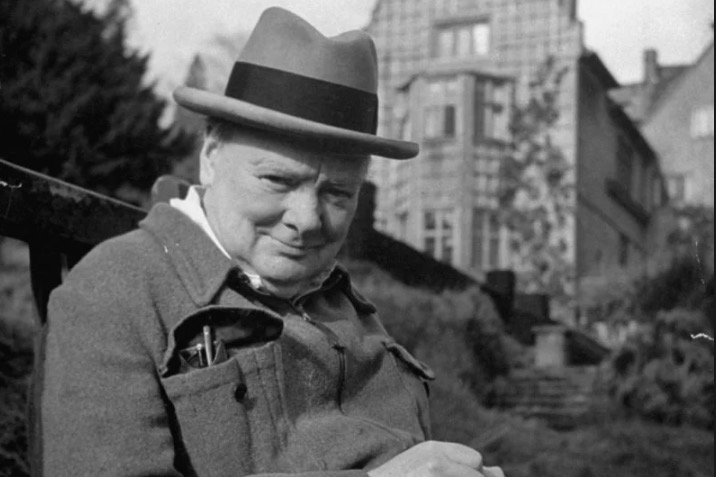
Churchill on Jargon: The Language as We Mangle It
Jargon and Monkey Motion
A friend sends a letter from a planning firm, “reaching out” to his homeowners association. The planners seek a consultant contract. They promise “awesome” results. Their proposals are so full of jargon that my friend wondered what Churchill would make of it. The letter contains many sentences Churchill would have deplored:
“The committee tasked us with the planning and completion of an inclusive and productive process.”
“General understanding offers guidance for the implementation committee.”
And: “An outward and honest marketing position achieves awesome goals…”
“Tasked,” of course, is a new verb, converted from the noun “task” by modern Newspeak. Like the noun “effort”—”We are going to effort that.” Such English may be familiar to readers. It is just the kind of boilerplate that usually precedes a consultant’s bill for $150,000.
“Reaching out” on “awesome” “issues”
Not restricted to planning consultants is the popular term “reaching out.” It has replaced the plain, simple, “contacting,” apparently because it’s more touchy-feely. We must vow never to use it.
While we’re at it, let’s also chuck that over-used adjective, “awesome.” St. Paul’s Cathedral is awesome. A well-made pepperoni pizza is merely “satisfying.” And “issues,” a PC euphemism for “problems,” used for fear of “offending” the problem, can also go.
When people write jargon they are trying to hide what they are really thinking. Or they have not thought at all, and are just trying to be trendy. Or they are subconsciously showing casual respect for the recipient. Moral: Always demand more bona fides from any anybody using lingo like this.
My friend asks for relevant Churchill remarks about jargon. There are some.
Churchill on Jargon
The writer quoted above is like a certain British premier. He “has the gift of compressing the largest number of words into the smallest amount of thought.” (Churchill on Prime Minister Ramsay MacDonald, 1933.)
Besides, he “stumbles over the truth and hastily picks himself up and hurries on as if nothing has happened.” (Churchill on Prime Minister Stanley Baldwin, 1936.)
How Churchill would react to such writing is easily seen under the Jargon heading of my quote book, Churchill in His Own Words, aka Churchill By Himself, the chapter on “Writer and Speaker.”
In 1948 (a memorandum to “My colleagues and their staffs”):
Let us have an end of such phrases as “It is also of importance to bear in mind the following considerations.” [or] “Consideration should be given to the possibility of carrying into effect.” Most of these woolly phrases are mere padding, which can be left out altogether or replaced by a single word. Let us not shrink from using the short expressive phrase, even if it is conversational.
* * *
In 1950 (replying to the Labour Party’s Hugh Gaitskell, who was educated at Winchester):
In this Debate we have had the usual jargon about “the infrastructure of a supra-national authority.” The original authorship is obscure. But it may well be that these words “infra” and “supra” have been introduced into our current political parlance by the band of intellectual highbrows who are naturally anxious to impress British labour with the fact that they learned Latin at Winchester. Although we may not relish the words, no one will wish to deny the old-school-tie contingent their modest indulgence in class self-consciousness.
* * *
In 1951 (reviewing a wartime memorandum by Soviet Foreign Minister Vyacheslav Molotov):
This grimace is a good example of how official jargon can be used to destroy any kind of human contact or even thought itself.
The right, short words
Denis Kelly, a literary assistant, helped Churchill abridge his World War II memoirs for a one-volume edition. Kelly wrote of a “Germany outmatched, outfought, isolated, surrounded by superior forces, occupied and disarmed.”
Mr. Kelly told me Churchill blue-lined all of this, saying, “The words you want are: ‘Germany was crushed.'”







2 thoughts on “Churchill on Jargon: The Language as We Mangle It”
Like fingernails down a chalk board – thank you!
Like fingernails down a chalk board – thank you!
Comments are closed.